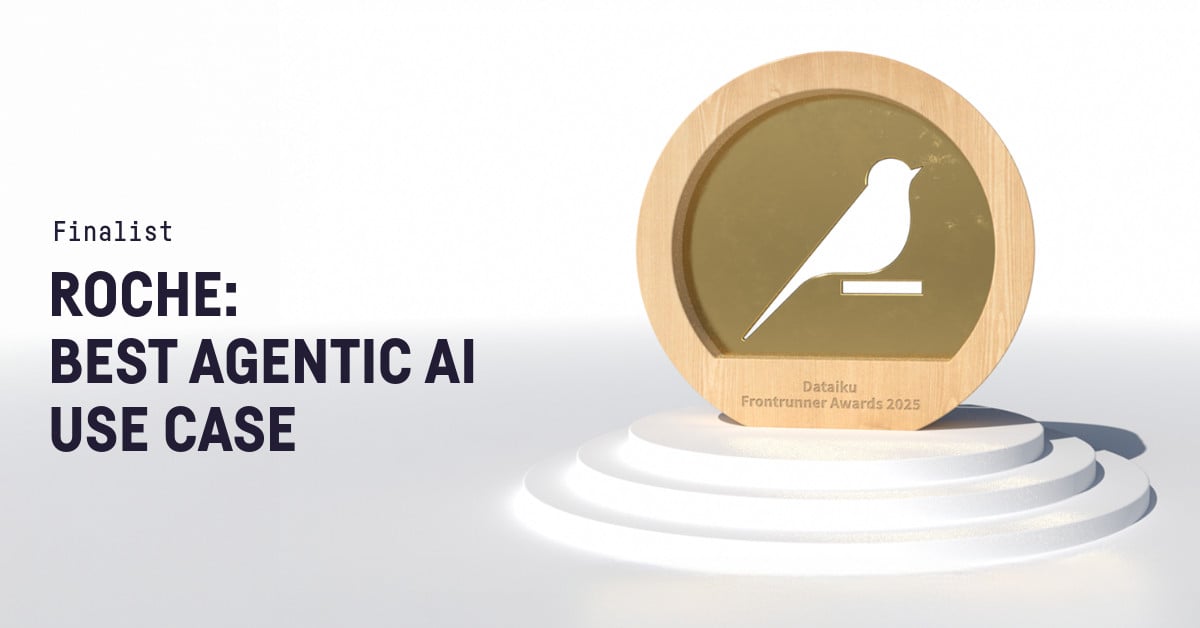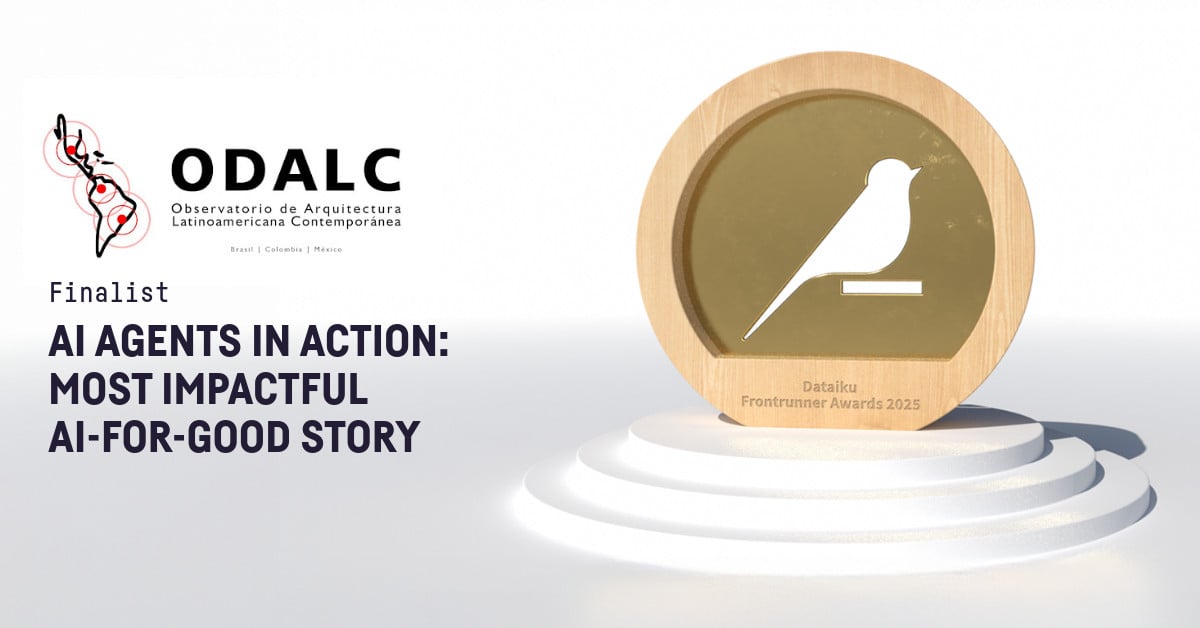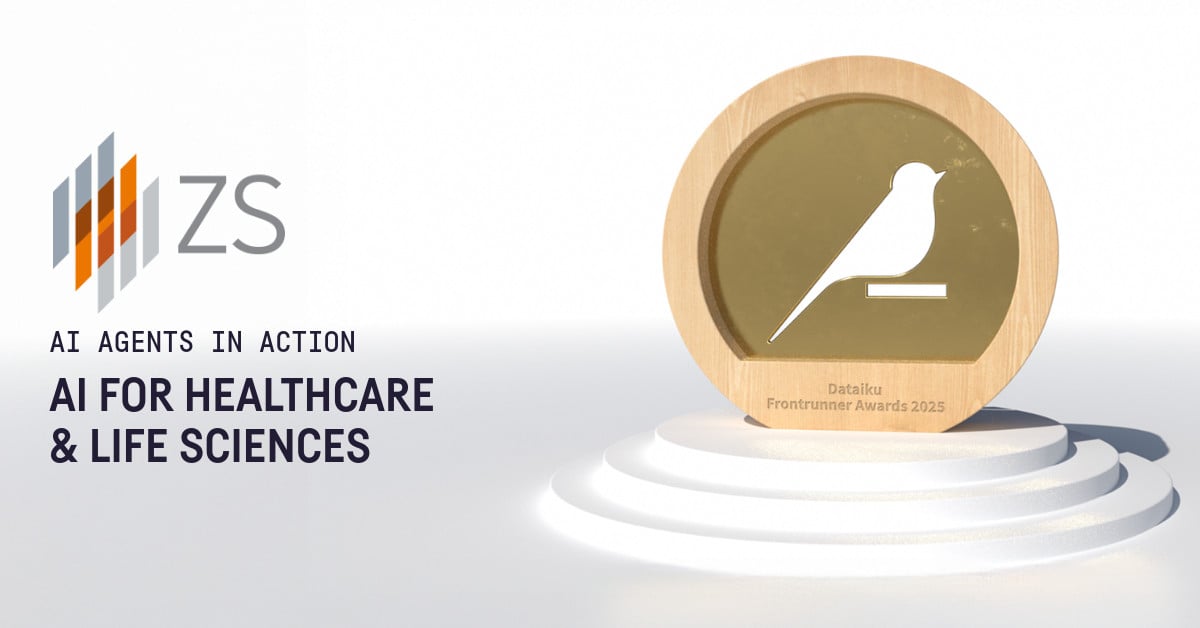With Dataiku, Monoprix transformed its data culture, allowing teams to benefit from advanced analytics while staying agile and efficient.
4 Months
to migrate all data projects from SAS to Dataiku
-60%
time spent on campaign management tasks
Monoprix, a leading French retailer, began leveraging Dataiku in early 2020 as part of a broader initiative to modernize its IT infrastructure and advance its data science capabilities. This shift was aligned with Monoprix's move to cloud-based solutions, from Teradata to Snowflake, and the reorganization of its data teams, aiming to centralize data science efforts under a unified, more strategic function.
Monoprix's Data Democratization Journey
Prior to using Dataiku, Monoprix's data team was tied to the marketing department and mainly acted as a support for customer relationship management (CRM) teams. They primarily focused on traditional reporting, campaign analysis, and basic modeling techniques, such as logistic regression. Data science activities were minimal, accounting for only 5% of the work, which frustrated members of the team.
With the rise of data science, Monoprix underwent a process of data democratization during which each department hired their own data analysts to handle their reporting. So the company now needed a central expert team to oversee all data science efforts — enter Monoprix’s data team.
From Marketing to Central Management
Management decided to move the data team away from the marketing department and under central management to support all departments and develop more advanced data science capabilities.
To do so, the data team needed a more modern, collaborative tool to handle the growing complexity of its data projects. The first criteria when deciding on a new tool was how easy the onboarding of teams would be. Dataiku’s flexibility and user-friendly interface allowed a smoother transition compared to other alternatives.
From SAS to Dataiku
Monoprix’s transition from SAS Enterprise to Dataiku was rapid, driven by the need to modernize its data ecosystem and retire legacy systems. While migrating to Dataiku was not necessarily the path of least resistance, Monoprix was willing to take this journey for a more modern and collaborative tool. With Dataiku, Monoprix could embrace more cutting-edge data science and machine learning techniques, including taking advantage of Dataiku's extensive generative AI offerings. Choosing Dataiku also helped Monoprix in their recruitment efforts, as they no longer required applicants with specific SAS coding skills.
"I thought it seemed impossible to migrate everything in four months, but we succeeded thanks to our highly engaged team who wanted to change and were very excited by this new positioning. They believed Dataiku would add value to their resume by bringing a new skill set. Their motivation made all the difference!"
Valérie Latchoumanin, Head of Data Science, Data Governance & Data Academy at Monoprix
Migration and Efficiency Gains
Promising Test Phase Results
After a two-month test where the team used Dataiku to successfully replicate one of their most complex models — which was developed and being maintained by an external provider at the time — Monoprix decided to keep using Dataiku. Over the course of 2020, they continued migrating all projects handled by their external provider to their internal team.
"The teams understood how Dataiku worked very quickly. We were able to build our [personalized recommendation] model in two months and even got better results than our external provider team."
Valérie Latchoumanin, Head of Data Science, Data Governance & Data Academy at Monoprix
In 2021 and 2022, the data team began supporting other departments using Dataiku. For example, they helped the supply chain department with demand forecasting to optimize the stocking of their stores and better understand which merchandise to offer on promotion. They also supported the HR team by forecasting the number of cashiers needed depending on the store’s activities.
As of 2024, the data science team, commercial data analyst teams, and the supply chain data analysts are all using Dataiku.
Productivity and Financial Gains
The migration from SAS to Dataiku unlocked significant productivity improvements and financial benefits. Prior to Dataiku, many routine tasks required manual intervention, even for simple operations like updating aggregates daily. With Dataiku, Monoprix was able to automate many of these processes, allowing the team to focus on more high-value projects. For example, they used to spend 50% to 60% of their time sending data to their campaign management tool and other campaign-related tasks. With Dataiku, they now only spend 5% of their time on campaign management tasks.
In addition to these productivity gains, Monoprix was able to move all projects being developed and maintained with their external provider entirely in house with Dataiku without hiring any additional profiles. Eliminating the external provider, with three to four data scientists working across multiple projects, resulted in significant yearly savings upwards of millions of dollars.
Organizational Collaboration
By leveraging Snowflake for data ingestion, storage, and processing with Dataiku as the analytics and data science layer, Monoprix ensures that data is properly ingested and available across teams, fostering collaboration between departments like supply chain and commercial analysis. Despite all teams not yet having access to Dataiku, Monoprix encourages collaboration across the company.

Future Projects and Generative AI
Looking ahead, Monoprix is exploring the potential of generative AI with Dataiku. They are currently running an A/B test automating the generation of product descriptions on their website, a task previously handled manually. The early results are promising, with the AI-generated content offering inspiration and speeding up the workflow for teams responsible for product descriptions.
Monoprix's focus on innovation continues as they explore more advanced features of Dataiku, such as Prompt Studios for comparing AI models and further leveraging capabilities of the Dataiku LLM Mesh.

GET TO KNOW MONOPRIX
Monoprix is a major French retail chain focused on food, fashion, beauty, and home products, operating urban stores and an e-commerce platform while serving millions of customers across France.
https://www.monoprix.frFOUNDED IN
1932
HEADQUARTERS
Clichy, France
MONOPRIX STORES (FRANCE & INTERNATIONAL)
450+









